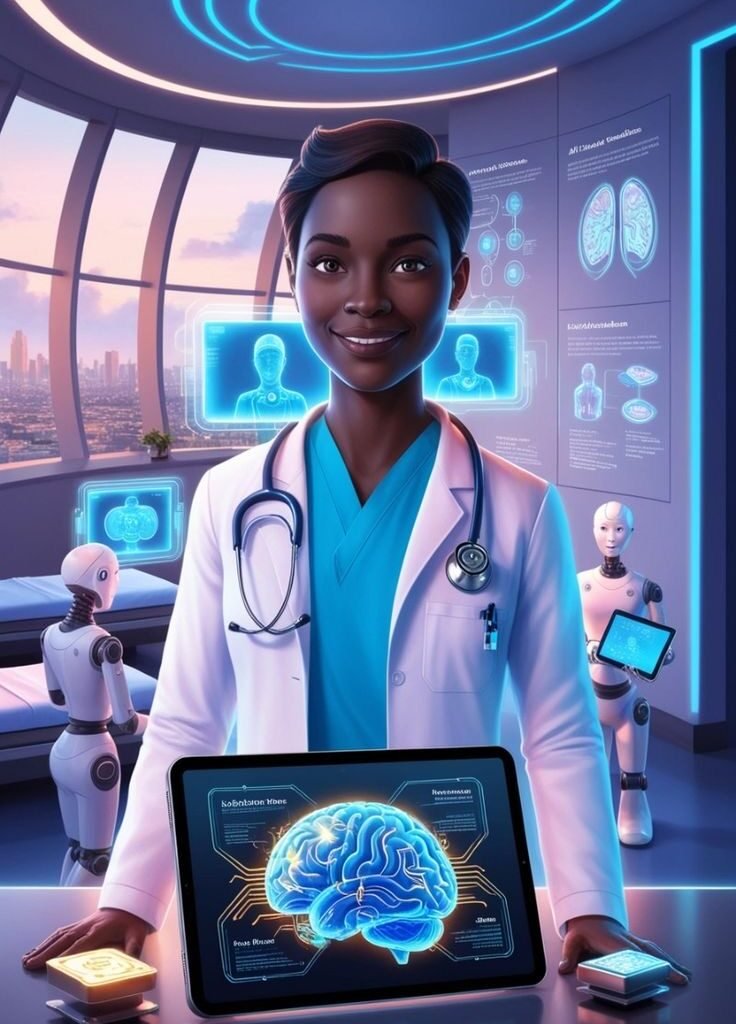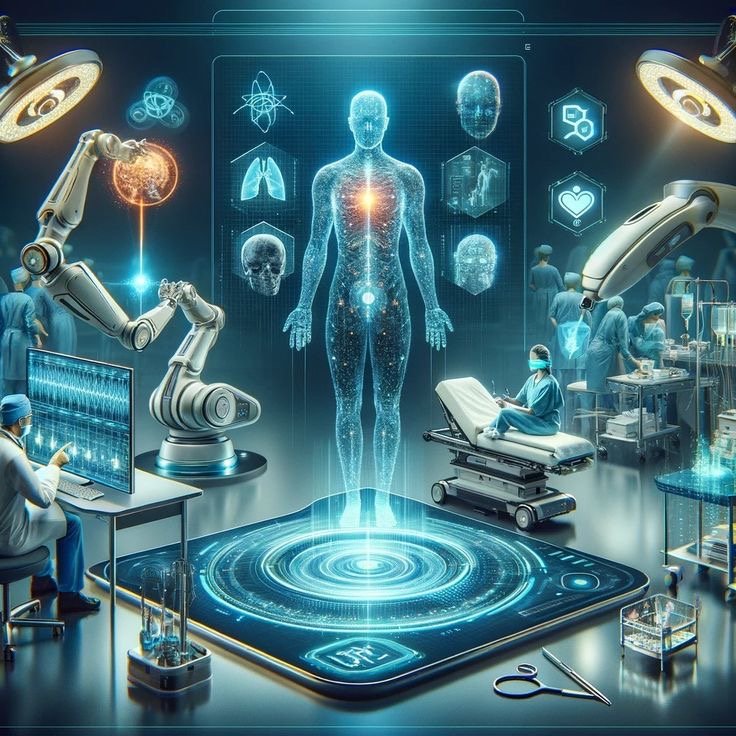technology has profoundly reshaped various industries, and healthcare is no exception. From advanced medical devices to artificial intelligence, technology has revolutionized how healthcare systems operate, improving patient care, enhancing efficiency, and optimizing access to essential health information. This article explores the key technological innovations in healthcare, the impact of these advancements, and why they are essential for the future of medicine.
Telehealth Technology: Expanding Access to Care
One of the most significant innovations is the rise of telehealth technology, which gained momentum during the COVID-19 pandemic. Telehealth allows patients to consult with healthcare providers remotely, improving access to care, particularly in underserved areas. This technology makes it possible for patients to receive medical advice, diagnoses, and treatments from the comfort of their homes. It enhances the patient experience by reducing the need for travel and wait times, ensuring that patients receive timely care, regardless of location.
Telehealth also enables real-time monitoring of chronic conditions, allowing doctors to make informed decisions quickly. This is especially crucial in managing conditions like diabetes and hypertension, where ongoing monitoring can prevent complications.
Artificial Intelligence (AI) and Machine Learning in Healthcare

Another groundbreaking innovation is the use of artificial intelligence (AI) and machine learning in healthcare. These technologies have introduced new ways to analyze vast amounts of data, helping healthcare providers make more accurate predictions and diagnoses. For example, AI-driven algorithms can detect patterns in imaging scans, identifying early signs of diseases like cancer far more efficiently than traditional methods.
AI is also being used to streamline administrative processes, reducing the burden on healthcare staff and allowing them to focus more on patient care. Machine learning, a subset of AI, is helping in drug discovery, identifying potential treatments faster and more accurately, which is critical in addressing diseases that have historically been difficult to treat.
Electronic Health Records (EHRs): Enhancing Communication and Efficiency
Electronic health records (EHRs) have transformed how patient data is stored, accessed, and managed. In the past, healthcare providers relied on paper records, which were prone to errors and inefficiencies. EHRs have simplified the process, allowing providers to access and update patient information in real-time. This not only improves communication between healthcare professionals but also enhances patient portals, where patients can review their own medical information, request prescription refills, and schedule appointments.
The transition to EHRs is a significant step toward a more efficient healthcare system, where data is easily accessible, accurate, and secure. With electronic records, medical errors caused by illegible handwriting or incomplete information are greatly reduced, leading to improved patient safety.
Smart Medical Devices and Data Collection
The rise of smart medical devices has transformed the way healthcare providers collect data and monitor patients. Devices such as wearable fitness trackers, heart monitors, and glucose sensors provide continuous monitoring of patients’ vital signs, offering real-time data that can be analyzed to improve treatment plans. These devices not only help doctors make informed decisions but also empower patients to take an active role in managing their health.
Data collection from these devices is critical in identifying trends, predicting potential health risks, and creating personalized treatment plans. In fact, one of the biggest benefits of technology in healthcare is the ability to provide tailored care that addresses individual needs rather than a one-size-fits-all approach.
Technology in Healthcare Management
Technology has also streamlined healthcare management systems, making it easier for healthcare administrators to coordinate care, manage resources, and improve operational efficiency. The use of information communication technology in healthcare has facilitated better communication between different departments within healthcare institutions, leading to more cohesive and integrated care.
Moreover, technology is being used to manage scheduling, reduce patient wait times, and optimize staff allocation. This leads to cost savings for healthcare providers and an overall improvement in the quality of care patients receive. The advantages of technology in healthcare management are evident in the smoother operation of clinics, hospitals, and other medical facilities.
Patient Portals and Enhanced Patient Experience
Patient engagement is crucial to improving health outcomes, and patient portals have played a significant role in this area. These digital platforms allow patients to access their medical records, communicate with their healthcare providers, and track their health progress. Portals help in creating a seamless and interactive experience for patients, giving them control over their health information and fostering a sense of empowerment.
The impact of technology on healthcare is also seen in the way patient engagement has been transformed. With greater access to medical information, patients are more informed and involved in their care decisions. This enhanced patient-provider communication leads to improved trust and satisfaction, which are key to successful health outcomes.
The Future of AI in Healthcare
When discussing the future, it’s important to ask, “What technology will have the biggest impact in healthcare?” The answer likely lies in AI and machine learning technologies as mentioned in an article by MDPI (http://www.mdpi.com/2075-4426/13/8/1214). AI can assist in predictive diagnostics, personalize treatments based on genetic information, and even predict the onset of diseases before symptoms appear.
Currently, there are three AI technology categories in healthcare: AI in clinical applications (such as diagnostics), AI in operational efficiency (such as resource management), and AI in patient care (such as virtual health assistants). Each of these areas holds tremendous potential to transform healthcare further and make it more accessible, efficient, and personalized.
Technological Innovation in Healthcare: What’s Next?
What is a technological innovation in healthcare? The newest technology in healthcare includes advancements such as robotic surgery, which allows surgeons to perform complex procedures with greater precision. Robotics minimizes human error and offers minimally invasive options for patients, leading to faster recovery times.
Another area of innovation is blockchain technology, which is being explored for secure patient data sharing. This technology ensures that patient data is protected from breaches while maintaining accessibility for authorized healthcare providers.
The Importance of Technology in Healthcare
The healthcare industry is experiencing a profound shift. Whether through AI-powered diagnostics, telehealth solutions, or smart medical devices, technology is improving patient care, optimizing resource management, and enhancing patient engagement.
Why technology is important in healthcare is clear: it improves outcomes, enhances efficiency, and ensures that care is accessible to all. The pros of technology in healthcare are undeniable, and as innovations continue, we can expect even greater improvements in the years to come.
Conclusion
Technology in healthcare today has changed the whole criteria of medical care. From electronic health records to artificial intelligence, these innovations are not only making healthcare more efficient but also significantly improving patient outcomes. The benefits of technology in healthcare are vast, ranging from enhanced access to care through telehealth to the transformative power of AI in diagnostics and treatment. As we look to the future, it’s clear that the integration of technology will continue to shape healthcare, making it more efficient, personalized, and accessible.
In conclusion, embracing technological advancements is not just beneficial—it’s essential for the future of healthcare.

